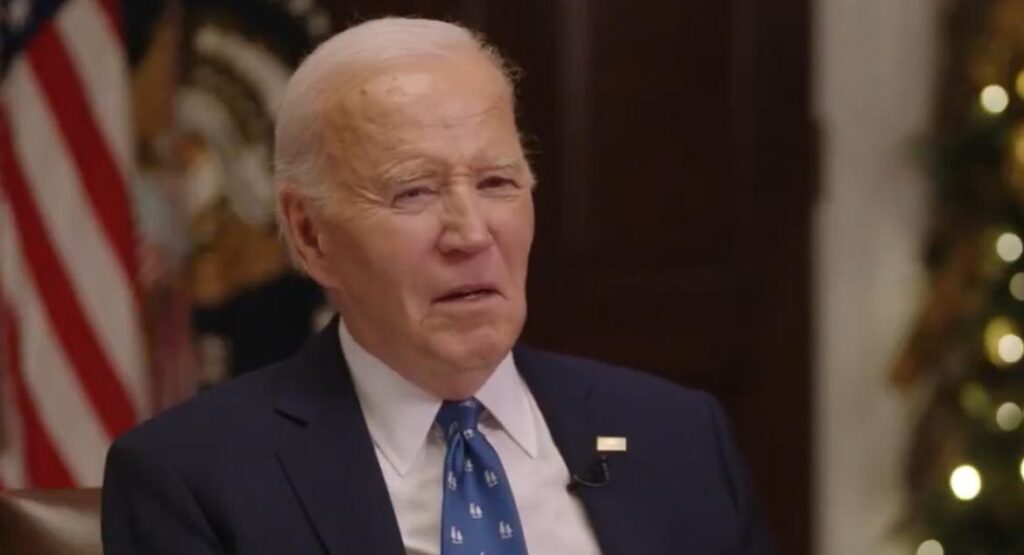In a significant move, President Joe Biden commuted the sentences of 37 out of 40 federal death row inmates, a decision that garnered substantial attention and sparked strong reactions, particularly from Team Trump. This act of clemency has placed Biden in the center of a heated political discourse concerning capital punishment, human rights, and criminal justice reform. The decision followed intensifying pressure from over 130 human and civil rights organizations advocating for the reform of the death penalty, highlighting the growing public sentiment in favor of reconsidering the application of capital punishment in the United States. Biden’s commitment to reform can be seen as part of a broader agenda aimed at addressing systemic injustices within the criminal justice system.
This recent commutation is not an isolated incident; it follows Biden’s earlier actions where he commuted over 1,500 sentences and pardoned 39 individuals, marking the largest single-day clemency action in American history, according to the Associated Press. Among those pardoned was Hunter Biden, the President’s son, who had faced felony gun charges. These moves have raised questions about the nature of justice and accountability, as they juxtapose his efforts for systemic reform with the serious nature of crimes committed by some of those whose sentences were commuted. Such actions could be interpreted as attempts to balance compassion in criminal justice with the need for accountability.
The reaction from Donald Trump and his team was immediate and harsh, portraying Biden’s decision as a blatant oversight of the grave crimes these individuals committed. Trump had previously emphasized the importance of maintaining the death penalty, even promising to accelerate federal executions during his presidency. During Trump’s first term, the Department of Justice, under his directive, carried out 13 federal executions, demonstrating a stark contrast to Biden’s recent commutations. By commuting the sentences of high-profile inmates convicted of heinous crimes, Biden appears to be making a statement against an aggressively punitive approach to justice and positioning himself on the side of rehabilitation and reform.
Among the inmates whose sentences were commuted is Jorge Avila-Torrez, a convicted murderer responsible for the brutal rapes and murders of two young girls, as well as the killing of a naval officer. The horrendous nature of such crimes evokes feelings of anger and outrage from victims’ families and advocates for justice, fueling arguments against Biden’s clemency initiative. Additionally, Biden granted clemency to two individuals convicted of killing an entire family in Florida, further stirring up emotions regarding the commutation of sentences for those who have committed such violent acts. The juxtaposition of compassion toward offenders and justice for victims is a contentious issue that continues to dominate public debates surrounding the criminal justice system.
Trump’s spokesperson, Steven Cheung, characterized Biden’s clemency decision as a “slap in the face” to the victims and their families. This critique underscores the broader political ramifications of Biden’s decision, suggesting that such actions could impact public perception and trust in the ability of government institutions to deliver justice. Cheung stated that these actions indicate a departure from established legal principles, emphasizing a need for a return to “the rule of law” which he claims will occur if Trump is re-elected. This highlights a fundamental divergence in political ideologies regarding justice, punishment, and the role of government in managing crime.
Ultimately, Biden’s decision to commute the sentences of federal death row inmates opens a complex dialogue about morality, justice, and the future of the death penalty in America. While some see this as a necessary step toward a more humane and just criminal justice system, others decry it as an affront to victims’ rights and a dangerous precedent. This polarizing issue reflects deeper societal divisions regarding criminal justice reform, the definition of accountability, and the balancing act between enforcing the law and advocating for human rights. As public opinion continues to evolve on these critical issues, such actions by political leaders will inevitably shape the future landscape of American justice.

